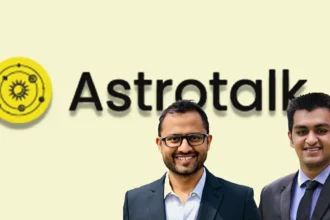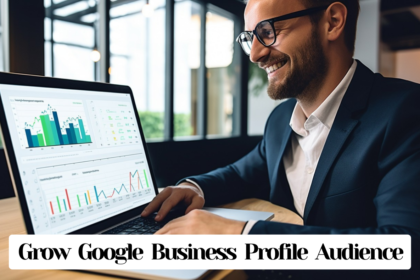The way people search, consume content, and make purchase decisions is evolving faster than ever, thanks to the rise of Artificial Intelligence (AI) and Search Engine Optimization (SEO) advancements. Businesses that fail to adapt to these changes risk losing visibility, engagement, and revenue.
With AI-driven search algorithms, Google’s Search Generative Experience (SGE), and zero-click searches becoming the norm, traditional SEO strategies—like keyword stuffing and backlinking—are no longer enough. A study by BrightEdge found that AI now influences over 60% of all online searches, making it imperative for brands to optimize their content for the AI-powered digital landscape.
This article dives deep into how AI is revolutionizing SEO, the emerging trends shaping the future of search, and the strategies businesses must adopt to stay competitive.
1. The Evolution of SEO: From Keywords to AI-Driven Search
A decade ago, SEO was largely about keyword stuffing, backlinks, and metadata optimization. The more often a keyword appeared, the higher a page ranked on Google. However, as users started searching in natural language, Google’s algorithm had to evolve to understand the context and intent behind searches rather than just matching keywords.
The introduction of Google’s RankBrain (2015), BERT (2019), and MUM (2021) marked a shift toward AI-powered search that understands human language more like a person. For example, if someone searches “best shoes for marathon training in humid weather,” Google now interprets the entire query holistically rather than just looking for pages with the words “shoes” and “marathon.”
As AI continues to refine search, businesses need to move beyond keyword-based SEO and create content that is informative, authoritative, and directly addresses user intent.
2. How AI is Reshaping Search Engines
Search engines are no longer simple directories of webpages—they are intelligent assistants that predict, analyze, and personalize search experiences.
Google’s MUM (Multitask Unified Model), for example, is 1000 times more powerful than BERT and can process text, images, and videos simultaneously to understand the context of a query. This means search results are no longer just static lists of links—they are rich, AI-generated summaries that aim to answer questions instantly.
Another advancement is Google’s Search Generative Experience (SGE), which uses AI to generate direct answers within search results instead of displaying multiple website links. For businesses, this means ranking on page one of Google may no longer guarantee traffic—unless their content is featured in AI-generated snippets.
To adapt, brands must optimize for intent, structure their content for AI readability, and ensure their information is well-researched and credible.
3. Zero-Click Searches & Google’s Search Generative Experience (SGE)
A growing challenge for businesses is the rise of zero-click searches, where users find answers directly on Google’s search page without clicking on any website. Studies by Semrush show that over 65% of all searches in 2024 now result in zero-click interactions.
For example, if someone searches “best time to post on Instagram,” Google’s AI may display the answer directly in the search result, reducing the need for users to visit a blog or website.
Implications for businesses:
- Organic traffic will decline as AI-generated answers become dominant.
- Featured snippets and structured data will play a crucial role in SEO success.
- Authority and expertise will be prioritized—Google favors well-researched, detailed content from trusted sources.
Brands should focus on creating highly structured, in-depth, and engaging content that encourages users to click through rather than just skimming AI-generated responses.
4. AI-Powered Content Creation & Optimization
AI is not just transforming search—it is also changing how content is created and optimized.
With tools like ChatGPT, Jasper, and SurferSEO, businesses can generate blog posts, product descriptions, and marketing copy at scale. According to HubSpot (2024), over 65% of marketers now use AI-powered tools for content creation, as AI-driven platforms can analyze audience behavior and predict what content will perform best.
However, AI-generated content alone is not enough. Google’s algorithms prioritize E-E-A-T (Experience, Expertise, Authority, and Trustworthiness), meaning brands must ensure their content is credible, fact-checked, and human-reviewed.
The best approach is a hybrid model, where AI handles data-driven optimization and automation, while humans bring creativity, storytelling, and emotional intelligence.
5. Voice Search, Conversational AI & Multimodal Search
Voice search is rapidly transforming SEO strategies, with over 500 million voice searches happening daily. Smart assistants like Alexa, Google Assistant, and Siri now answer questions instantly, which means brands must optimize their content for conversational queries.
Similarly, multimodal search—where users combine voice, text, and images in a single query—is on the rise. Google’s Lens AI now allows users to take a photo of a product and ask, “Where can I buy this near me?”
To optimize for these trends, businesses must:
- Use natural, spoken language in content.
- Implement FAQ-style structured data that answers common voice queries.
- Optimize for visual search and image-based SEO.
6. Personalization & Predictive Analytics in SEO
AI-driven personalization is redefining user experiences. Search engines now predict what users want before they even search, tailoring results based on browsing history, location, and behavior.
Platforms like HubSpot AI and Adobe Sensei use predictive analytics to determine which content will convert best, allowing brands to target users with hyper-personalized marketing campaigns.
As personalization becomes a key ranking factor, businesses should focus on dynamic content strategies, where website experiences change based on user intent, preferences, and past behavior.
7. The Future of AI in SEO: What Businesses Must Do Today
To thrive in this new AI-driven era, businesses must rethink their SEO and content marketing strategies.
Key Takeaways:
- Move from keyword-based SEO to intent-driven content. Google’s AI now understands context, so answering user questions comprehensively is more important than targeting specific keywords.
- Invest in AI-powered SEO tools like SurferSEO, Clearscope, and MarketMuse to analyze and optimize content.
- Prepare for zero-click searches by optimizing content for featured snippets, structured data, and Google’s AI-driven search results.
- Enhance voice search and multimodal SEO strategies to ensure discoverability across voice, text, and visual search formats.
- Leverage AI for predictive analytics to create personalized content experiences that boost engagement and conversion rates.
Conclusion: Are You Ready for the AI-SEO Revolution?
AI is redefining the rules of SEO and digital marketing. Brands that fail to adapt will fade into obscurity, while those that embrace AI-driven SEO strategies will dominate search rankings.
At GreyGiant, we specialize in cutting-edge SEO, AI-powered digital strategy, and brand building, ensuring businesses stay ahead of AI-driven search trends.
👉 Want to future-proof your SEO strategy? Let’s talk: www.greygiant.in















